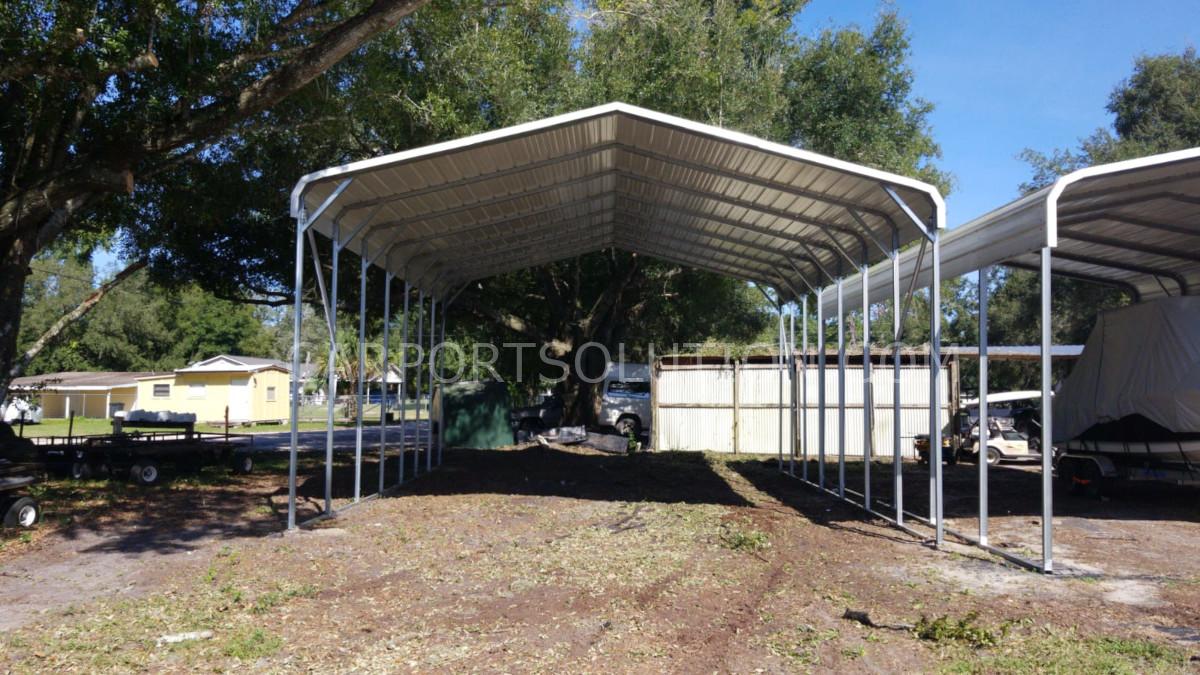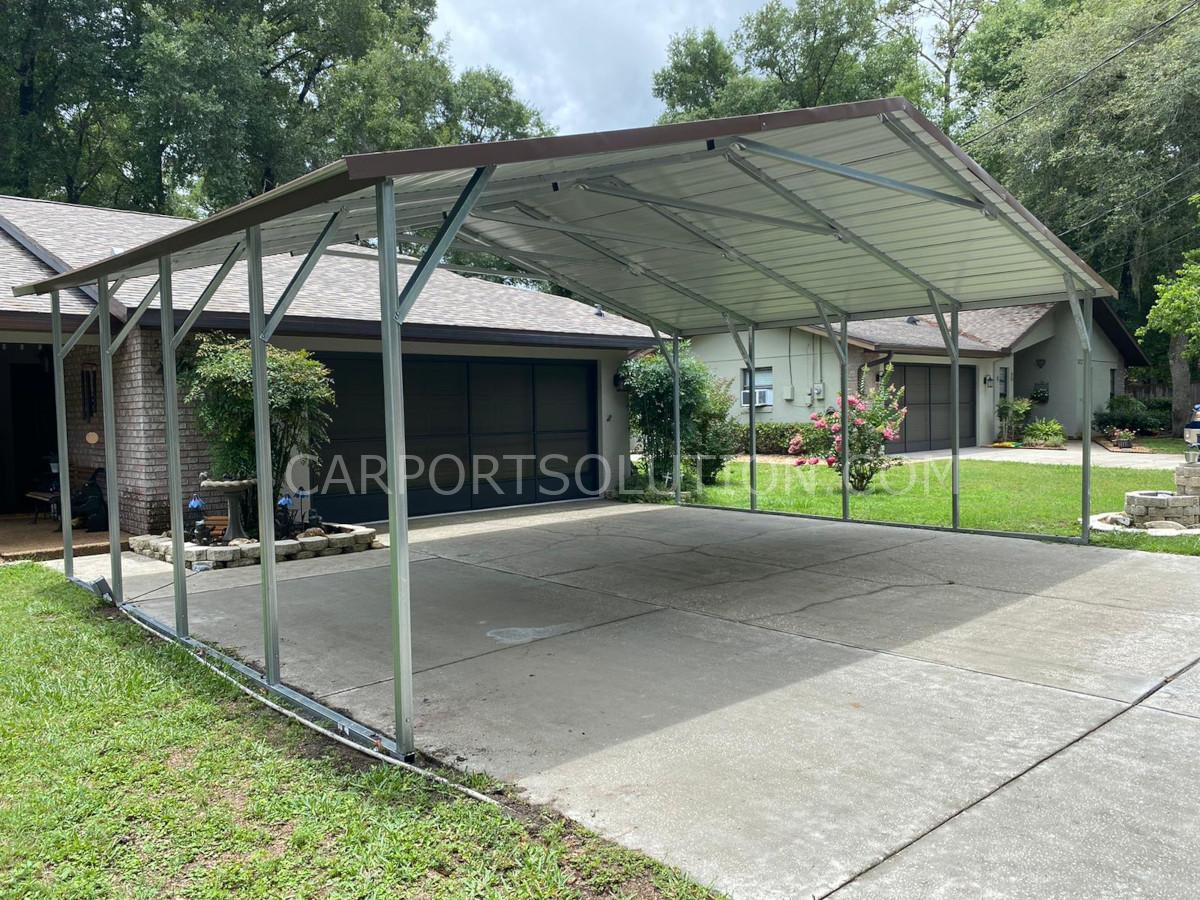Carports are essential structures for protecting vehicles from the elements, providing shelter and security without the need for a fully enclosed garage. They come in various shapes, sizes, and materials, offering versatility to suit different preferences and needs. In this guide, we’ll delve into the different types of carports available in the market, highlighting their features, advantages, and considerations.
Attached Carports
- Description: Attached carports are directly connected to a pre-existing structure, such as a house or a building. They often utilize one or more sides of the existing structure for support.
- Advantages: Cost-effective as they require fewer materials and labor compared to freestanding carports. They also provide convenient access to the house.
- Considerations: The design must complement the existing structure, and local building codes may dictate specific requirements for attachment and support.

Freestanding Carports
- Description: Freestanding carports are standalone structures not attached to any other building. They are supported by their own framework and are often placed in open areas or near driveways.
- Advantages: Offer flexibility in placement and design. They can be positioned according to the owner’s preference and can accommodate multiple vehicles.
- Considerations: Requires more space and may involve additional costs for supporting posts and foundation.

Metal Carports
- Description: Metal carports are constructed primarily using steel or aluminum materials. They are known for their durability, strength, and resistance to weather elements.
- Advantages: Low maintenance, resistant to rust, and typically have longer lifespans compared to other materials. They are also customizable and available in various sizes.
- Considerations: Initial cost may be higher than other materials, and in extreme climates, they may require insulation to prevent condensation.
Wooden Carports
- Description: Wooden carports are constructed using timber beams and posts. They offer a natural and aesthetically pleasing look, blending well with residential surroundings.
- Advantages: Easy to customize and modify. Wood can be stained or painted to match the existing architecture. Wood also provides excellent insulation properties.
- Considerations: Regular maintenance is required to prevent rot, insect infestation, and decay. Wooden carports may also be more susceptible to fire damage.
Canvas or Fabric Carports
- Description: These carports feature a fabric canopy stretched over a metal frame. They provide temporary or semi-permanent shelter and are often used for events, camping, or short-term vehicle storage.
- Advantages: Lightweight, portable, and easy to assemble. They offer affordability and flexibility in usage.
- Considerations: Not as durable as metal or wood carports. Fabric may degrade over time due to UV exposure and weather conditions, requiring replacement.
Conclusion – The Various Types of Carports
Carports come in various types, each offering distinct features, advantages, and considerations. Whether you prioritize durability, aesthetics, affordability, or environmental sustainability, there’s a carport type to suit your needs. Before making a decision, consider factors such as climate, budget, local regulations, and personal preferences to choose the most suitable carport for your property. Choose Carport Solutions today and ensure your vehicles are well-protected for years to come. Invest wisely and safeguard your assets with our range of durable and customizable carport options.
